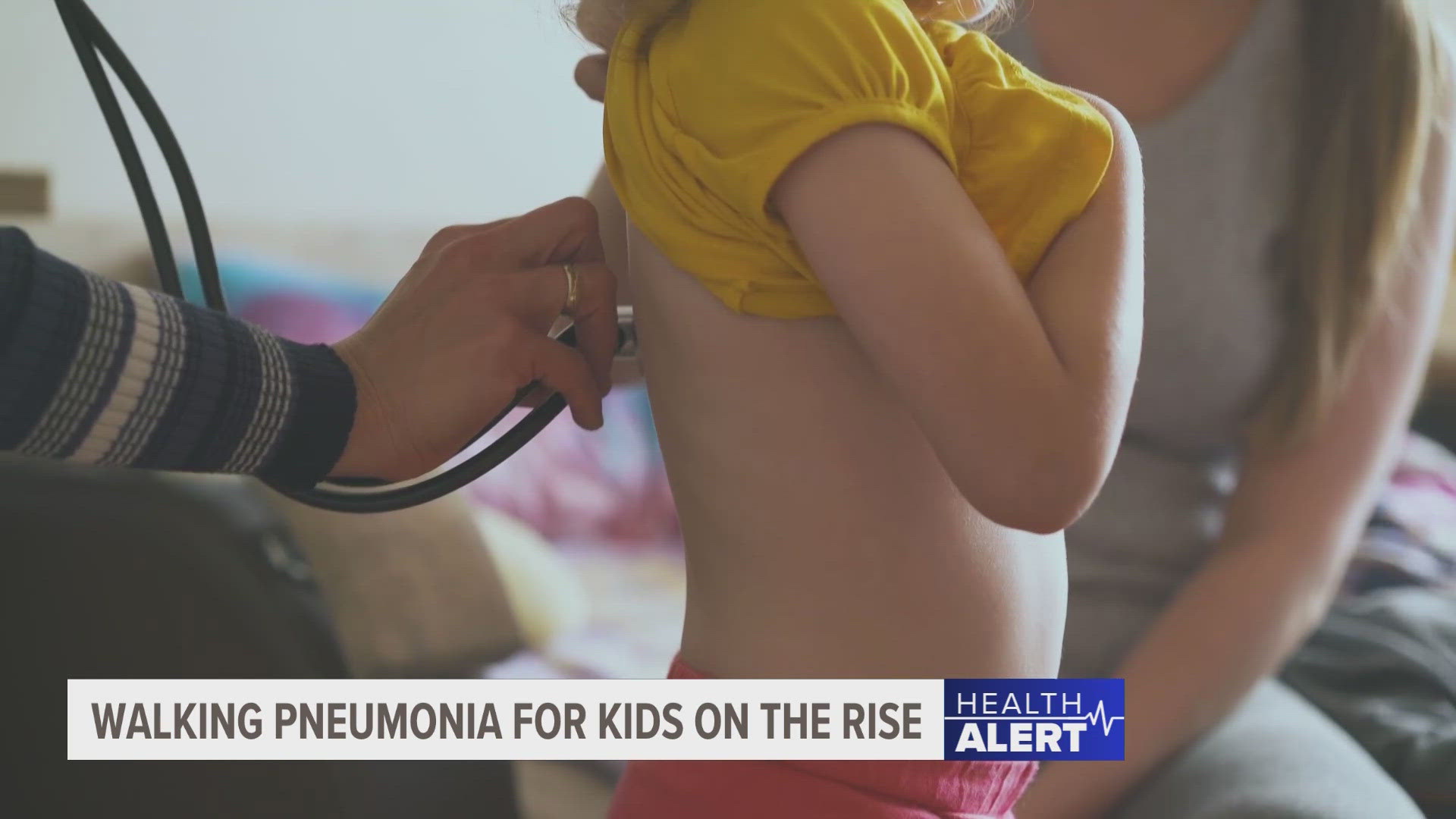GRAND RAPIDS, Mich. — Cases of children getting walking pneumonia have been rising across the country. Walking pneumonia is a less severe form of bacterial pneumonia.
This is something reflective in West Michigan, according to Dr. Rosemary Olivero, section chief of pediatric infectious diseases at Helen DeVos Children's Hospital.
"We're not seeing anything that's catastrophic in terms of like a pandemic or anything along those lines," said Olivero. "But we are seeing a return to the pre-pandemic levels."
She explains there are a couple of reasons for that. One, children are back in school and interacting indoors without masks and social distancing. Also, testing has made it easier for clinicians to diagnose walking pneumonia. A nasal swab test is now more accessible when it was not widely available outside a hospital setting pre-pandemic.
Walking pneumonia is transmitted by large respiratory droplets, similar to COVID. It is most contagious during the early course when the child will feel the bulk of respiratory illness symptoms.
There is no vaccine for walking pneumonia. Olivero explains it is a less severe form of pneumonia, and it is typically not life-threatening.
"The really annoying thing about walking pneumonia is you cough for a really long time," said Olivero. "You just cough and cough and cough and cough, and even after the acute infectious phase is over, you still cough. You can actually end up with something called bronchitis after having walking pneumonia, where you just have this chronic cough. It can last for two to three weeks, and you just produce kind of a bad-tasting phlegm, and that's just really disruptive."
However, if your child is acting differently, not breathing well or not eating or drinking, it is time to seek more immediate medical care.
She says teenagers and adults often have some immunity against walking pneumonia and tend to not get quite as sick.
This increase in walking pneumonia comes on the cusp of cold and flu season. Olivero says HDCH is gearing up for their busy season. She reminds parents to have their child vaccinated against COVID-19 and influenza, and if applicable, RSV.
"We actually have a monoclonal antibody that's available to prevent hospitalization from RSV, which is the leading cause of hospitalization and ER visits in children from approximately November, December till March and April," said Olivero. "That's an absolutely huge one."
She also urges anyone interacting with young infants to get pertussis, commonly called whooping cough, vaccine.

